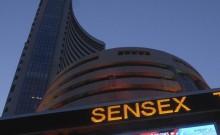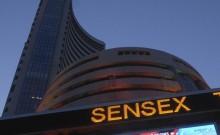
Prime Minister Narendra Modi-led BJP government's efforts to widen the tax net has got a boost with simplified Goods and Services Tax (GST) registration. The 35th GST Council meeting with Finance Minister Nirmala Sitharaman at the chair has made Aadhar the sole document required from a taxpayer for GST registration.
The wide gap between the tax collection target and actual revenue realisation for both direct and indirect taxes was a worrying aspect of the tenure of Arun Jaitley as Finance Minister.
The first meeting of the GST Council of Modi 2.0 with Sitharaman at the helm of the Finance Ministry also took several decisions that will have a major impact on GST administration. The meeting has extended the deadline for filing returns for the financial year 2017-18 (FY18) until August 31.
The official notification can be expected any day, according to media reports. The meeting also extended by two years tenure of the National Anti-profiteering Authority (NAA), which was due to end on November 30. The extension will enable the NAA to take up all pending cases.
The council's nod to a proposal to levy 10 percent penalty for delay in depositing the profiteered amount beyond 30 days is expected to encourage further compliance by taxpayers. They will also benefit from the council's decision to enable raising all B2B tax invoices online from the GST portal by January 1, 2020. This will help the traders do away with separate e-way bills and encourage compliance.

The decision to make the electronic ticketing system compulsory for multiplexes with multi-screens will help curb tax evasion and the use of black tickets that have been prevalent. However, the nation's green push got a mild setback as the council decided to defer a proposed rate cut on electric vehicles, chargers and their leasing. The committee will submit a report on the matter later after getting the opinion of the fitment committee for checking the feasibility of the rate cut. At present, the government charges GST rates of 12 percent and 28 percent on for electric vehicles and electric chargers respectively. The rate decisions on solar power generating equipment and wind turbines will also be delayed as they have gone to the Fitment Committee.
The council could not take a decision on a rate cut proposal for lotteries as the matter needed consultations with the attorney general of India. The 35th GST Council meeting was made aware of two pending court cases and it decided that the matter required the opinion of the Attorney General.

















